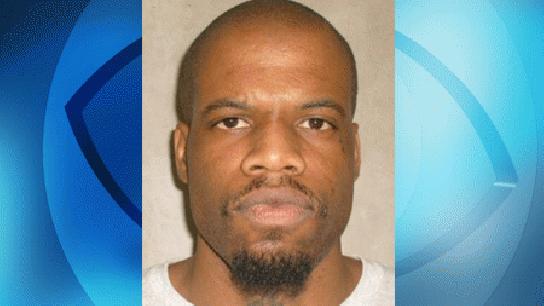
Oklahoma Governor Mary Fallin has ordered a “full review” of the state’s procedures following Clayton Lockett’s botched execution.
Clayton Lockett’s execution was stopped after 20 minutes on Tuesday evening
Officials say one of his veins ruptured, preventing the drugs from taking full effect. He died of a heart attack less than an hour later.
The execution of a fellow inmate, scheduled to die hours after Clayton Lockett, has been postponed amid the review.
Clayton Lockett was sentenced to death for shooting 19-year-old Stephanie Neiman and watching as two accomplices buried her alive in 1999.
Stephanie Neiman and a friend had interrupted the men as they robbed a home.
Clayton Lockett’s lawyer, David Autry, said the failed execution was a “horrible thing to witness”.

“Obviously the whole thing was gummed up and botched from beginning to end,” David Autry said.
“Halting the execution obviously did Lockett no good.”
The problems surrounding Clayton Lockett’s execution come amid a wider debate over the legality of the three-drug method and whether its use violates guarantees in the US constitution “against cruel and unusual punishment”.
Both men scheduled to die on Tuesday had unsuccessfully challenged a state law that shields the identities of companies supplying the drugs.
The execution began at 18:23 local time, when officials administered a sedative.
Clayton Lockett was declared unconscious 10 minutes later, allowing officials to begin injecting the two drugs that would kill him.
But three minutes later, he began breathing heavily and writhing.
Prison officials pulled a curtain across the view of witnesses when it became apparent that something had gone wrong.
Oklahoma’s top prison official ordered a halt to the execution shortly after.
“We believe that a vein was blown and the drugs weren’t working as they were designed to.” Oklahoma Department of Corrections spokesman Jerry Massie said.
But David Autry questioned the remarks, insisting his client “had large arms and very prominent veins,” according to the Associated Press.
Oklahoma Governor Mary Fallin said in a statement that she had issued a 14-day stay of execution for fellow inmate Charles Warner, 46, while the state completed a review of its execution procedures.
Charles Warner had been scheduled to be put to death in the same room two hours later in a rare double execution.
He was convicted of the 1997 murder and rape of an 11-month-old girl.
Charles Warner’s lawyer, Madeline Cohen, who witnessed Clayton Lockett’s execution, said he had been “tortured to death” and called for an independent investigation, including an outside medical examination.
The US has encountered increasing problems in obtaining the drugs for lethal injections, amid an embargo by European pharmaceutical firms.
Some states have turned to untried combinations of drugs or have sought to obtain the drugs custom-made from compounding pharmacies. Several states that still have the death penalty have since switched to a single-drug method.
Charles Warner and Clayton Lockett had unsuccessfully challenged an Oklahoma state law that blocks officials from revealing – even in court – the identities of the companies supplying the drugs.
The state maintains the law is necessary to protect the suppliers from legal action and harassment.
Clayton Lockett and Charles Warner argued they needed to know the names of the suppliers in order to ensure the quality of the drugs that would be used to kill them and to be certain that they had been obtained legally.
[youtube cQvOyQLyKuQ 650]